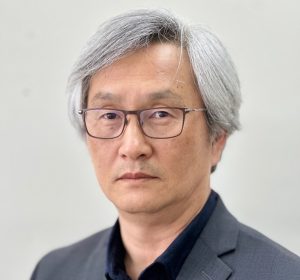
By Dongpil Kim
The author is chief editorial writer of The Korea Daily.
For the Korean American community, 1992 was a momentous year. On April 29, the Los Angeles riots broke out, and in November, the first Korean American congressman was elected. Both events marked a turning point in the history of Korean immigration to the United States.
The LA riots were a wake-up call for the Korean American community to realize the need for political power. Korean Americans were the biggest victims of the riots, but no one was listening to our voices. Korean Americans started searching for the reason and realized that the lack of political power was the problem.
Before, we thought we could achieve the American dream by just working hard, but the riots made us realize that there are limits to that. At the time, “Jay Chang Joon Kim became the first Korean American elected to the U.S. House of Representatives” was big news. Moreover, the fact that he was a first-generation immigrant and a successful businessman gave us the confidence that we could do it.
However, when Kim retired in 1999, the lineage of Korean American federal lawmakers was cut short. But the challenge continued. Even if they didn’t make it to Congress, there were a number of Korean American elected officials at the local government level, including city councilors and mayors.
In the end, in 2018, the first Korean American was elected to Congress 20 years later. In New Jersey, 36-year-old Andy Kim defeated an incumbent to win a seat in the U.S. House of Representatives. It was the emergence of a young and capable second-generation Korean American politician.
Since then, more Korean Americans have entered politics. Finally, in the 2020 election, four Korean Americans were elected to Congress at the same time. And all of them were re-elected or secured a third term in the 2022 election. This is one of the fruits of the “Korean American political empowerment” that we have been calling for since the LA riots.
The reason for emphasizing political power is simple. Bringing up Korean American politicians, casting our votes, and donating money is an effective way to assert our rights. The Korean American community is considered an influential minority because of these efforts.

One of the most prominent supporters of Korean American politicians was the late Dr. Mike Myung Ki Hong. Although he was a Republican himself, he crossed party lines to support any Korean American candidates. He used to say, “The Republicans don’t like it when I support Democratic candidates, but I can’t help it.” He understood why political power is important.
The Korean American community has an opportunity to take its political power to the next level. Andy Kim announced his candidacy for the U.S. Senate in New Jersey. Kim, a three-term congressman, has become a prominent figure in the political world.
The U.S. Senate, which elects two representatives from each state, has a different weight than the House of Representatives. The U.S. Senate is still a “narrow gate” for Koreans and Asians as a whole. In the history of the Senate, there are only nine Asian-Americans, including two current Senators, Mazie Hirono (Hawaii) and Tammy Duckworth (Illinois). That is why Andy Kim’s challenge is significant.
Rep. Andy Kim is a talented and passionate politician who has been an active voice not only in his district but also in the Korean American community and Korea-related issues. He rose to national prominence during the Capitol attack on January 6, 2021. While most lawmakers were busy fleeing the mob, he defended the Capitol by cleaning the damaged interior.
New Jersey is known as a Democratic stronghold. This means that if Kim wins the party’s primary, he has a good chance of being elected. Because of this, several candidates within the Democratic Party have already announced their intentions to run or are considering it. The race is likely to be fierce heading into the primary in March 2024.
Rep. Andy Kim is trying to break another glass ceiling. His challenge could mark another turning point in the 120-year history of Korean immigration to the United States.




